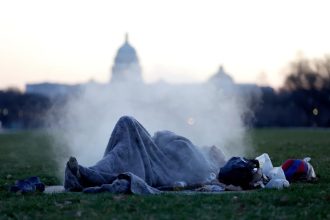The Network Against Corruption and Anti-Drug Trafficking has called for the release of its chairman, Mr. Fejiro Oliver. The group said Oliver, a journalist is currently in police custody.
According to a statement sent to PUNCH online on Saturday by its operational manager, Stanley Ugagbe, the group said Oliver was arrested in Abuja on Thursday and later taken to Delta State.
NACAT described Oliver as an advocate for accountability and transparency, adding that his arrest has raised concerns within civil society.
The organisation urged the authorities to ensure that due process is followed in the matter and appealed for his immediate release.
The statement added, “Mr Oliver was immediately transferred to Asaba, Delta State, where he is currently being detained at the State Criminal Investigation Department in the midst of hardened criminals and suspected kidnappers.
“Oliver is not a criminal; he is a courageous journalist, whistleblower, and anti-corruption advocate whose tireless work has exposed high-level graft, abuse of office, and organised criminal networks across Nigeria.
“The continued detention of Oliver is a litmus test for Nigeria’s commitment to justice, the rule of law, and human rights.
“We call on all Nigerians — the media, civil society, human rights defenders, and the international community — to rise in defence of justice and hold those responsible to account. This is not just about Oliver — this is about the future of free speech and accountability in Nigeria.
“We hereby demand the immediate and unconditional release of Fejiro Oliver from unlawful detention.”
Oliver, who has in the past worked as an investigative journalist, is known for his reports on alleged corruption and abuse of power in both government and the private sector. His arrest has rekindled debates about press freedom in Nigeria, where media practitioners and rights groups have frequently clashed with security agencies over harassment, intimidation, and prolonged detentions.
Nigeria is ranked 112 out of 180 countries in the 2025 World Press Freedom Index by Reporters Without Borders, which cited arbitrary arrests, censorship, and judicial harassment as some of the challenges faced by journalists in the country.









